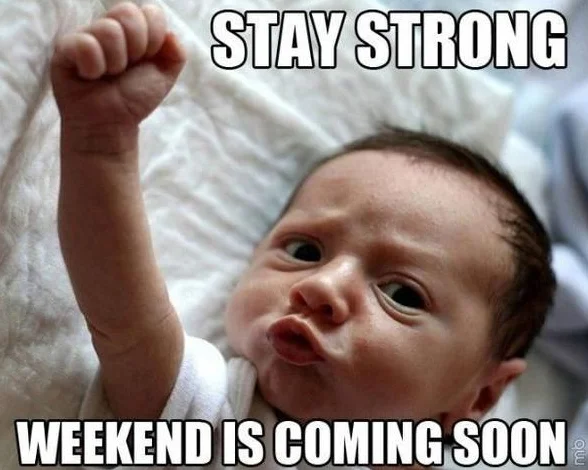ENTERTAINMENT
Exploring Creative and Engaging Relapse Prevention Activities

Exploring creative and engaging relapse prevention activities can be a fun and effective way to stay on track. These activities not only offer a distraction but also help build new skills and hobbies. From art projects to sports, there are plenty of ways to keep your mind and body busy.
By finding enjoyable activities, you can better manage stress and avoid triggers. Let’s dive into some ideas that can help you maintain your recovery journey.
Mindfulness and Meditation Practices
Mindfulness and meditation are great ways to help with mental health and stop relapse. These practices mean paying close attention to what you feel and think without judging it. You can do this by sitting quietly and focusing on your breath or by noticing the things around you.
Doing mindfulness and meditation every day can make you feel calm and happy. It also helps you handle stress better and keeps your mind clear. This makes you less likely to go back to bad habits.
Creative Arts
Engaging in creative arts encompasses activities such as painting, drawing, sculpting, and crafting, which serve as expressive outlets for emotions and thoughts. These activities allow individuals to channel their feelings and potentially troubling thoughts into tangible art, providing a therapeutic and satisfying experience.
Engaging in creative arts can cultivate substantial coping skills, empowering individuals to better navigate emotional challenges. The act of creating art can be very calming and can help people cope with stress and anxiety, further shielding them from the risk of relapse.
Physical Exercise
Exercise is a strong way to help with addiction recovery. It includes activities such as walking, jogging, or biking that help to boost your mood and make your body healthy. Doing exercise releases chemicals in your brain that make you feel good.
This is very helpful when you are trying to stay away from bad habits. Regular physical activity also makes you tired, which can help you sleep better. Better sleep means you are less likely to make harmful choices.
Exercise groups can also connect you with new friends who support your healthy lifestyle. Overall, staying active is a great way to stay on the right path to addiction recovery.
Volunteering and Community Service
Helping others by volunteering and doing community service can be very good for people recovering from addiction. When you help others, you can feel useful and part of something bigger. This can make you feel happy and needed.
Activities such as helping at the food bank or cleaning up parks give you a sense of purpose. Meeting new people while helping out can also make new friends who care about good things.
These good feelings and new friends make it less likely for you to relapse. Volunteering can be a great way to stay busy and feel good about yourself.
Recreational Activities
Engaging in recreational activities can significantly aid in the prevention of relapse by offering enjoyable and fulfilling ways to spend your time. Activities such as hiking, swimming, or playing sports provide opportunities to have fun and stay physically active. They can lift your mood and help you build a healthier lifestyle.
Recreational activities also offer a chance to meet new people and make friends who share your interests. Whether it’s joining a local sports team, going for a nature walk, or participating in group fitness classes, these activities help you stay connected and focused on positive experiences.
By incorporating recreational activities into your routine, you can create joyful and supportive environments that support your journey in recovery.
Support Groups and Therapy
Support groups and therapy can help people stay away from addiction. These groups offer a place where people can talk about their feelings and problems. It’s comforting to know that others understand and do not judge. Therapists help by giving tools to deal with stress and triggers.
They listen and guide without being harsh. For extra help, living in a sober living home can provide a safe space. This kind of home has rules that keep the environment focused on staying clean and healthy. Spending time with others in the same situation can make it easier to deal with tough times.
Educational Pursuits
Learning new things can be a very good way to stay away from bad habits. When you start a new class or study something new, you keep your mind busy. You can learn about things like history, science, or cooking. Taking classes online or at a community center can help you gain new skills.
As you learn, you can feel proud of what you know. Reading books or watching educational videos also helps you keep your brain active. When you focus on learning, you spend less time thinking about old, bad habits. This way, education can help you stay on the right track.
Financial Management
Managing your money well is very important when you are recovering from addiction. Making a budget helps you keep track of what you earn and what you spend. It ensures you don’t run out of money and can afford your needs.
Saving some money each month can be a safety net for unexpected expenses. Paying off any debts you have is crucial. By doing this, you reduce stress and have more control over your finances. Involving yourself in financial planning encourages responsibility and stability.
Learning basic banking, like how to use a checking account or getting a debit card, can be very helpful. Overall, good financial habits can support your journey to a better life.
Building Healthy Relationships
Building healthy relationships is very important for staying sober. Good friends and family make you feel happy and not alone. To have good relationships, always be honest and kind. Talk to others and listen to them carefully.
Spend time with people who make you feel good about yourself. Stay away from people who don’t support your recovery. Trust between friends and family is key.
Doing fun things together, like eating meals or playing games, helps build strong bonds. Good relationships give you strength and make staying sober easier.
Learn All About Relapse Prevention Activities
In conclusion, keeping busy with good relapse prevention activities can help you stay away from addiction. Doing things like art, exercise, and helping others makes you feel happy. Learning new stuff and managing your money well keeps your mind busy.
Spending time with good friends and family gives you support. All these things together make it easier to stay sober and live a better life.
Did you find this article helpful? Check out the rest of our blog.
ENTERTAINMENT
W0wkino: The Future of Digital Streaming Platforms

Introduction to W0wkino
Welcome to the world of W0wkino, where streaming meets innovation. As digital content consumption evolves, one platform is making waves and changing how we experience entertainment. Gone are the days of being tied down to traditional viewing habits. With W0wkino, viewers can explore a diverse array of content at their fingertips anytime, anywhere.
This platform isn’t just another player in the crowded streaming market; it aims to redefine what it means to consume media in today’s fast-paced environment. Whether you’re a movie buff or someone seeking fresh indie gems, W0wkino has something for everyone. Get ready as we dive deeper into what makes this platform unique and how it’s set to shape the future of digital entertainment!
What sets W0wkino apart from other streaming platforms?
W0wkino stands out in the crowded streaming landscape with its unique approach to content curation. Unlike traditional platforms, it emphasizes personalized viewing experiences tailored to individual tastes.
The user interface is designed for seamless navigation. Viewers can easily discover new favorites through sophisticated algorithms that learn and adapt over time.
Moreover, W0wkino features exclusive content not found anywhere else. This commitment to originality attracts both creators and audiences alike, fostering a vibrant community around fresh ideas.
Additionally, W0wkino offers flexible subscription models—allowing users access without lengthy contracts or commitments.
This combination of personalization, exclusivity, and freedom sets W0wkino apart as a true innovator in digital streaming services.
Features and Benefits of W0wkino
W0wkino offers a range of innovative features designed to enhance user experience. With its sleek interface, navigating through content feels intuitive and straightforward. Users can easily find their favorite movies and shows or discover new gems through personalized recommendations.
One standout benefit is the diverse library available at your fingertips. From independent films to mainstream blockbusters, W0wkino caters to various tastes and preferences. It also supports multiple devices, allowing seamless streaming whether you’re on your phone or relaxing on the couch.
Another intriguing aspect is its interactive community features. Users can engage with fellow viewers through comments and forums, creating a shared viewing experience unlike any other platform. This sense of community adds an extra layer of enjoyment that many other services lack.
Additionally, W0wkino frequently updates its catalog with fresh content, ensuring boredom never sets in for subscribers eager for something new to watch.
Collaborations and Partnerships with Content Creators
W0wkino embraces a collaborative spirit that sets it apart in the crowded streaming landscape. By partnering with emerging content creators, the platform fosters innovation and creativity. This approach not only enriches its library but also empowers filmmakers and artists.
These collaborations often lead to exclusive content that resonates deeply with niche audiences. W0wkino provides tools and resources for creators, enabling them to experiment without traditional constraints.
Moreover, partnerships extend beyond mere distribution; they involve co-development of projects tailored for specific viewer demographics. Creators can engage directly with their audience through live Q&A sessions or behind-the-scenes insights.
This dynamic interaction enhances viewer loyalty while allowing creators to build a personal connection with fans. As W0wkino continues to grow, these strategic alliances will likely redefine how we experience digital entertainment in unique ways.
The Impact of W0wkino on the Entertainment Industry
W0wkino is making waves in the entertainment landscape. Its innovative model blurs the lines between traditional broadcasting and new media.
By fostering a direct connection between creators and audiences, W0wkino empowers artists to share their work without intermediaries. This shift encourages originality and diversity in content.
Moreover, its flexible subscription options appeal to various demographics. Viewers can access niche genres that mainstream platforms often overlook.
The platform’s user-friendly interface enhances viewer experience, keeping audiences engaged for longer periods. With personalized recommendations, users discover hidden gems tailored to their tastes.
As W0wkino gains traction, it challenges established players in the industry. The competitive pressure may lead to more creative offerings across all streaming services as they adapt to this new wave of consumer preferences.
Predictions for the Future of W0wkino
The future of W0wkino looks promising. As technology continues to evolve, we can expect enhanced user experiences. The integration of AI algorithms will likely personalize content recommendations like never before.
Moreover, the platform may expand its library significantly. This could include exclusive deals with major studios and indie creators alike. Such diversity would cater to a broader audience.
Live streaming events might become a staple on W0wkino too. Imagine concerts or interactive shows that engage viewers in real-time.
Additionally, as global audiences grow, multilingual support will probably be prioritized. Subtitles and dubbing options could make international hits accessible to everyone.
With community-driven initiatives taking shape, viewer involvement might redefine content creation on the platform offering fans a chance to influence what they watch next.
Conclusion
W0wkino is making waves in the digital streaming landscape. Its unique approach and innovative features position it as a frontrunner among platforms vying for viewer attention. With its focus on community engagement, diverse content library, and user-friendly interface, W0wkino is not just another option it’s an experience.
As collaborations with talented content creators continue to grow, the platform’s offerings expand further. This synergy fuels creativity and ensures that viewers have access to fresh perspectives and stories they crave.
The entertainment industry will undoubtedly feel W0wkino’s influence as it reshapes how audiences consume media. Traditional models may need to adapt or risk being left behind in this evolving digital age.
Looking ahead, predictions suggest that W0wkino will keep innovating, pushing boundaries while attracting new users eager for quality content. The future seems bright for both the platform and its community of creators.
With these developments in mind, it’s exciting to think about where W0wkino might lead us next in our viewing habits. One thing is clear: this platform has set a solid foundation that could redefine our relationship with entertainment forever.
ENTERTAINMENT
4 Must-Have Digital Storytelling Tools for Engaging Content Creation

In the digital age, storytelling transcends traditional boundaries, offering content creators versatile platforms to capture and share their narratives. Whether you’re a marketer, educator, or enthusiastic blogger, leveraging the right digital storytelling tools is crucial for crafting engaging and immersive content.
Here’s a curated list of four must-have tools that stand out for their unique features and ability to bring stories to life online.
1. Canva: For Visually Compelling Stories
Canva, a user-friendly design tool, radically simplifies the process of creating visually appealing digital stories. It’s a playground for those looking to inject their tales with color, vibrancy, and personality, without needing a degree in graphic design.
Canva’s intuitive drag-and-drop interface, along with a vast library of templates, images, and fonts, allows creators to assemble eye-catching designs in minutes. Whether it’s for a blog, social media, or educational content, Canva ensures your digital story not only gets told but also seen and remembered.
2. AdobeSpark: For Multimedia Storytelling Experiences
Adobe Spark makes it super easy to tell stories that grab everyone’s attention – not just with text, but with beautiful images, videos, and web pages, too! Imagine making a story so fun that your friends can’t stop scrolling. That’s what you can do here.
You don’t need to be a pro designer or a tech wizard either. It’s like having magic at your fingertips, letting you turn your ideas into awesome projects in no time.
And if you’re looking for inspiration or a giggle, check out some funny short stories to spark your creativity. With Adobe Spark, making everyone wow with your stories is as easy as pie – a cool pie.
3. Animoto: For Powerful Video Storytelling
Animoto is a tool that makes your stories pop with awesome videos. It’s super easy and fun to use! You can make your stories dance with pictures, music, and words. It’s great for when you want to share your adventures, celebrate a big day, or tell a story about something you love. Think of it as your magic box for making videos that everyone loves watching.
Plus, you don’t need to be a big-time movie maker. If you can click and drag, you’re all set. Use Animoto to make your creative storytelling shine and get everyone excited about your stories.
4. WordPress With Elementor: For Immersive Blogging Experiences
WordPress combined with Elementor is like giving your blogs a superpower. It’s a tool that lets you build cool, beautiful blog posts with just drag and drop – no need to be a tech expert! Imagine playing with blocks, but instead of blocks, you’re arranging your blog to look exactly how you want.
WordPress is where your blog lives and Elementor makes it look awesome. You can add pictures, make words big or small, and even put in fun colors without writing a single line of code. It’s perfect for making your blog stand out and giving your readers a fun place to visit.
Learn All About Digital Storytelling Tools
Choosing the right digital storytelling tools is like picking the perfect ingredients for a delicious meal. It really can make or break your story. Don’t sweat if you’re not sure which to choose.
Try a bit of this and a bit of that, just like tasting food while cooking. And remember, the most awesome stories are the ones that are fun to tell and to hear. So, go on, pick a tool, and start making your stories unforgettable.
Did you find this article helpful? Check out the rest of our blog.
ENTERTAINMENT
VidWorthy, an Online Sanctuary of Humor, Connection, and Endless Entertainment

In the labyrinthine realm of the digital world, where countless websites clamor for your attention, finding a platform that truly resonates with your entertainment needs can be akin to a wild goose chase. But amidst this vast ocean of content, there exists an oasis known as VidWorthy, a website that transcends the boundaries of mere entertainment and has blossomed into a thriving community of like-minded individuals.
VidWorthy is not just a repository of amusing memes, trending pictures, and viral videos; it’s a sanctuary where laughter, creativity, and a sense of belonging intertwine seamlessly. Its user-friendly interface greets you with warmth and ease, effortlessly guiding you through a curated collection of the best and most prevalent content the internet has to offer.
Unlike other platforms that prioritize passive consumption, VidWorthy places great emphasis on active participation from its users. Forums and group chats serve as vibrant meeting grounds, fostering a sense of community and enabling members to share their own creations, engage in lively discussions, and forge meaningful connections with fellow content enthusiasts.
The diversity of content categories on VidWorthy is a testament to its all-encompassing nature. From the rib-tickling antics of animals behaving badly to the mesmerizing displays of human talent and innovation, there’s something to cater to every taste and mood. And with new additions gracing the platform daily, boredom becomes an extinct concept. Say goodbye to the endless scroll! VidWorthy’s user-friendly interface makes navigating through a plethora of content a breeze. With curated collections of the best and most trending memes, pictures, videos, and GIFs, you’ll never have to waste time searching for entertainment again.
As you delve deeper into the captivating world of VidWorthy, you’ll discover an unwavering commitment to promoting positivity and fostering connections in the often isolating digital landscape. The platform serves as a beacon of humor, a refuge from life’s stresses, and a catalyst for spreading joy and laughter far and wide.VidWorthy isn’t just a website – it’s a dynamic community where like-minded individuals come together to share the latest and greatest in digital entertainment. Whether you’re a seasoned meme enthusiast or simply in need of a good laugh, VidWorthy has something for everyone.

If the allure of laughter, entertainment, and community resonates with you, then VidWorthy beckons your presence. Join today and experience entertainment like never before. Become part of a vibrant community where funny memes, trending pictures, entertaining videos, and viral GIFs reign supreme. Let VidWorthy be your daily dose of laughter, inspiration, and connection in the ever-evolving digital realm.
Trending Videos: A Captivating Symphony of Entertainment
Prepare to be mesmerized by VidWorthy’s trending videos, a captivating tapestry woven from heartwarming animal rescues, jaw-dropping talent showcases, and everything in between. Whether you seek a moment of levity or a surge of inspiration, our carefully curated selection of entertaining videos will keep you glued to your screen.
From heartwarming animal rescues to jaw-dropping talent showcases, VidWorthy’s trending videos are sure to keep you glued to your screen. Whether you need a good laugh or a dose of inspiration, our curated selection of entertaining videos has something for everyone. Join the VidWorthy community today and embark on a journey of endless entertainment. Discover the latest viral hits, laugh until your sides ache, and be inspired by the remarkable feats captured on camera. Let VidWorthy be your constant companion, delivering laughter, joy, and a sense of belonging in the ever-connected digital world.

 BUSINESS1 year ago
BUSINESS1 year agoExploring the Benefits of Commercial Printing

 HOME IMPROVEMENT12 months ago
HOME IMPROVEMENT12 months agoThe Do’s and Don’ts of Renting Rubbish Bins for Your Next Renovation

 BUSINESS12 months ago
BUSINESS12 months agoBrand Visibility with Imprint Now and Custom Poly Mailers

 HEALTH8 months ago
HEALTH8 months agoThe Surprising Benefits of Weight Loss Peptides You Need to Know

 TECHNOLOGY10 months ago
TECHNOLOGY10 months agoDizipal 608: The Tech Revolution Redefined

 HEALTH7 months ago
HEALTH7 months agoYour Guide to Shedding Pounds in the Digital Age

 HOME IMPROVEMENT7 months ago
HOME IMPROVEMENT7 months agoGet Your Grout to Gleam With These Easy-To-Follow Tips

 HEALTH11 months ago
HEALTH11 months agoHappy Hippo Kratom Reviews: Read Before You Buy!










